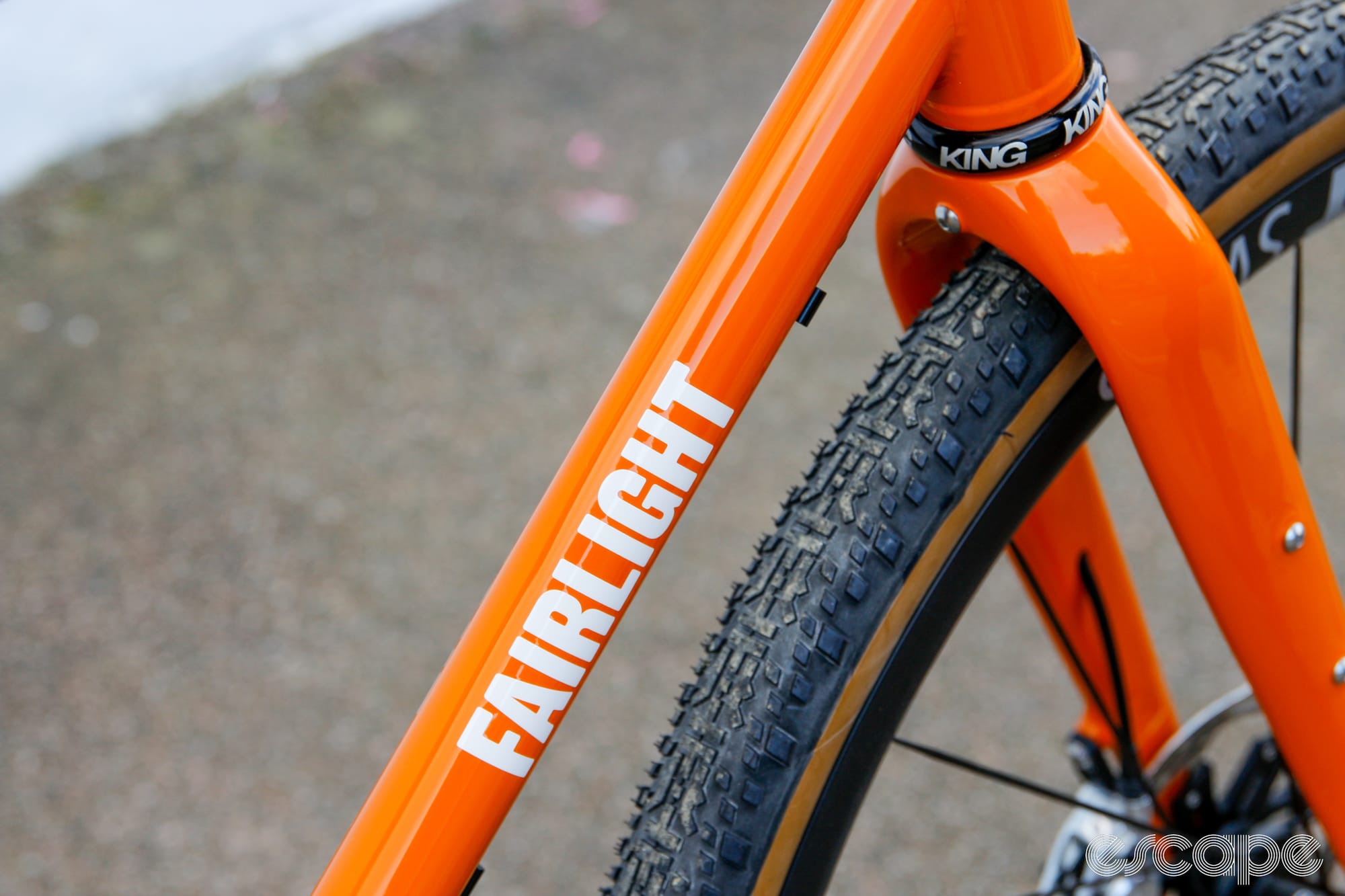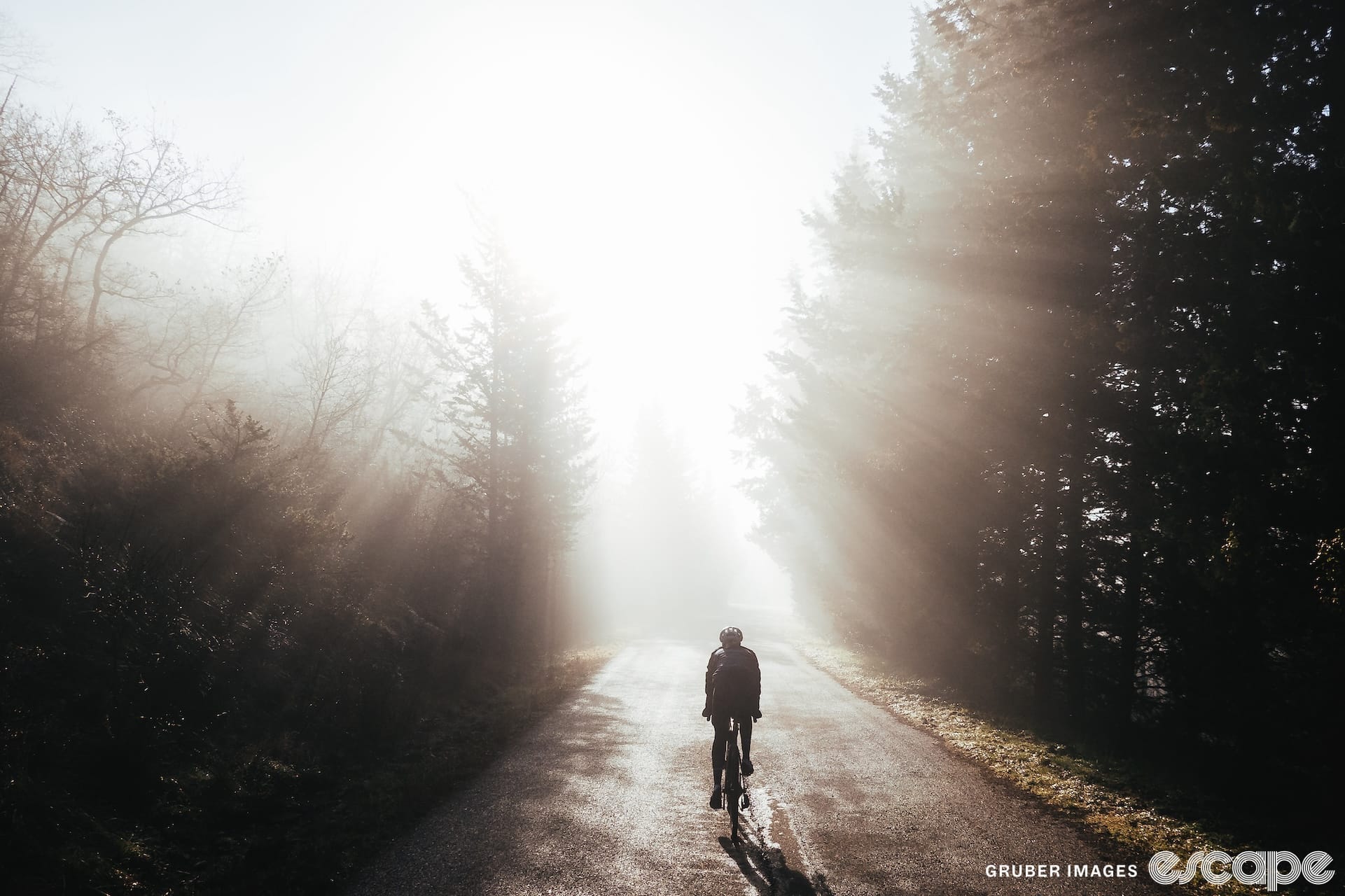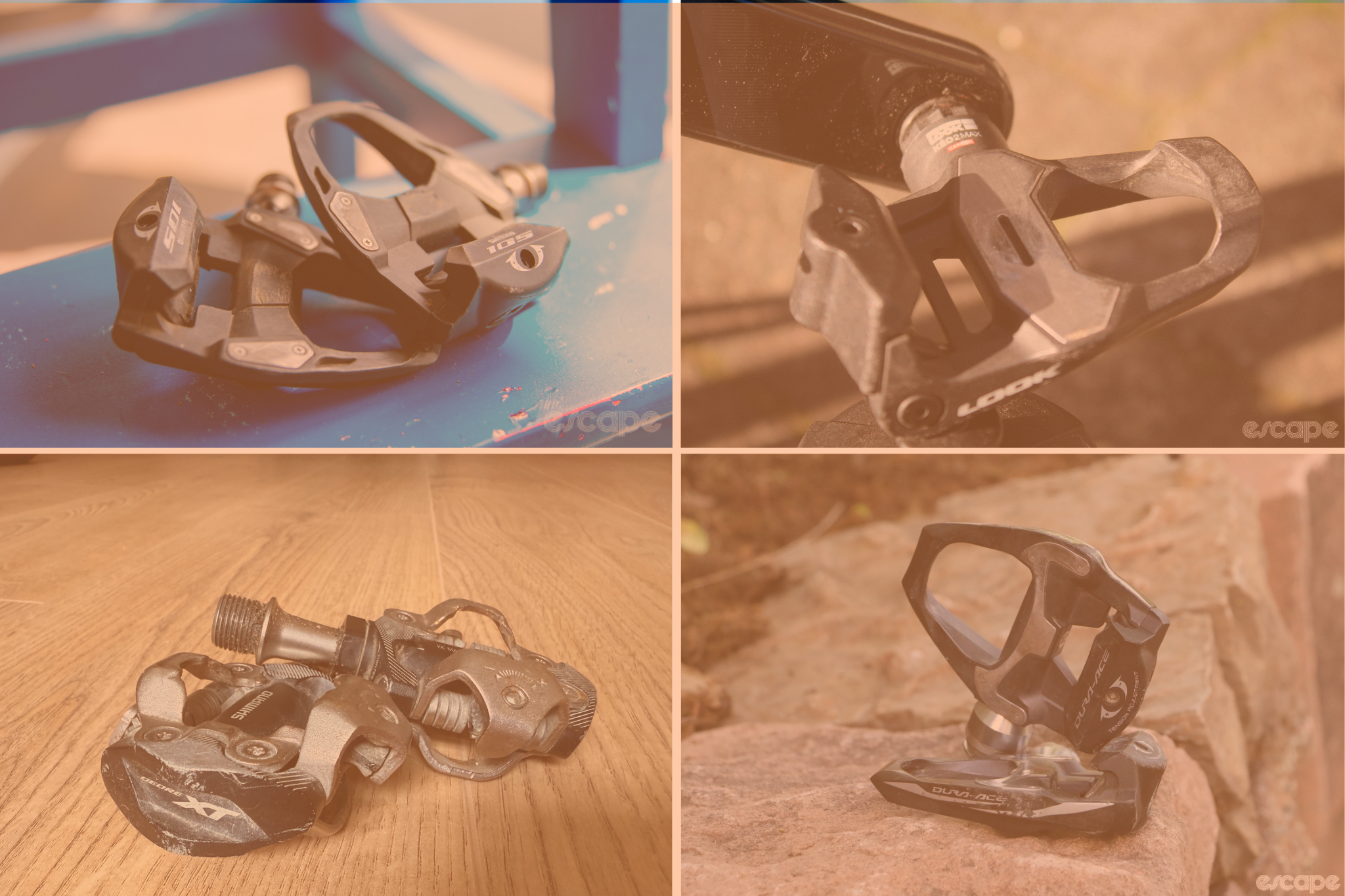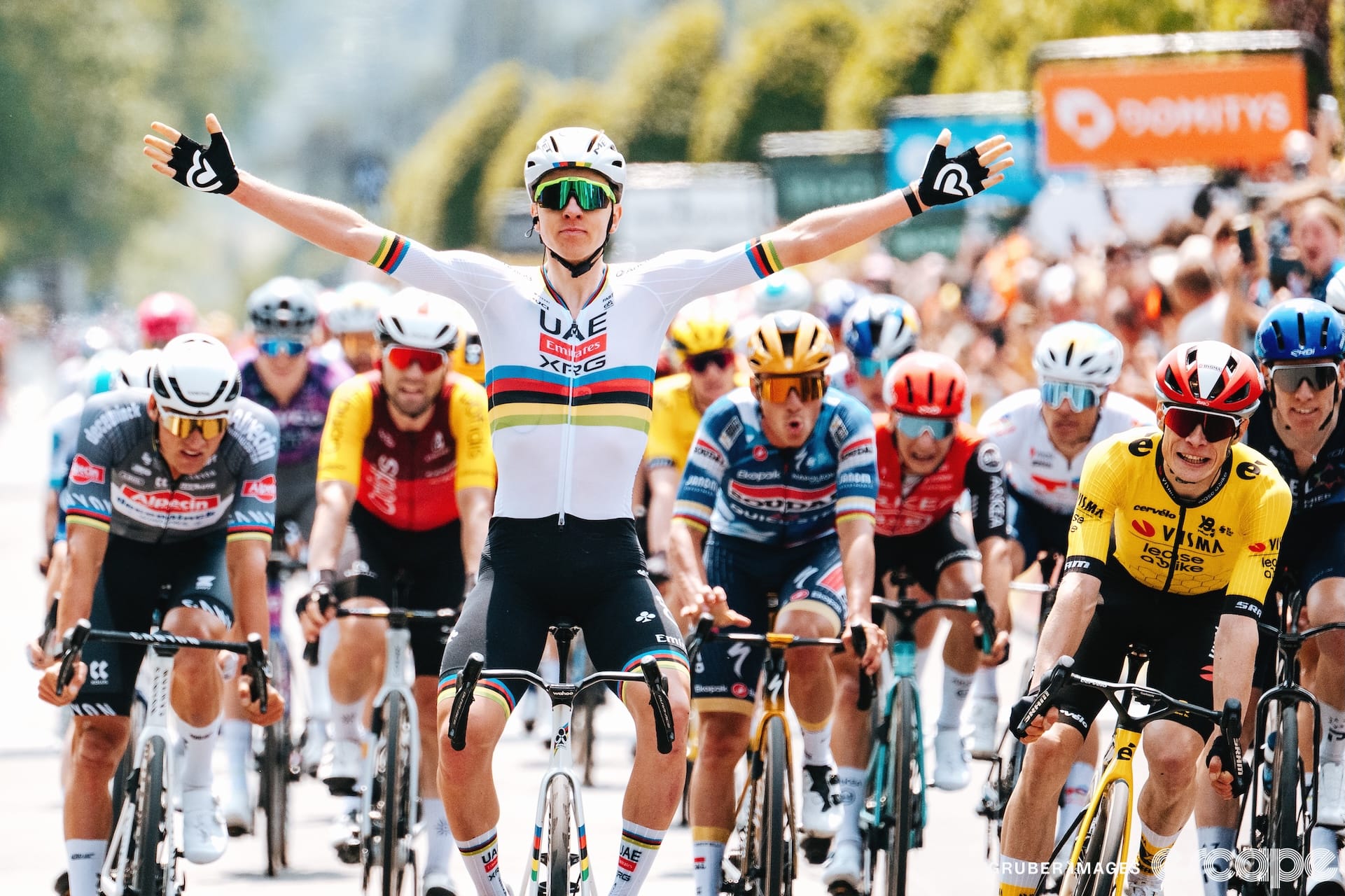A humble sticker taped to a glass door that reads "Fairlight" is the only indication you’ve arrived at the HQ of one of the UK’s most quietly respected bike brands, tucked inside North London’s Florentia Village. There’s no large signage or even bikes on show – an entrance that feels almost deliberately on-brand.
Inside, Dom Thomas, co-founder and head designer, greets me in his cluttered office. The wall behind his iMac is plastered with sketches and geometry charts. A dog bed and boxes of frame parts line the floor.
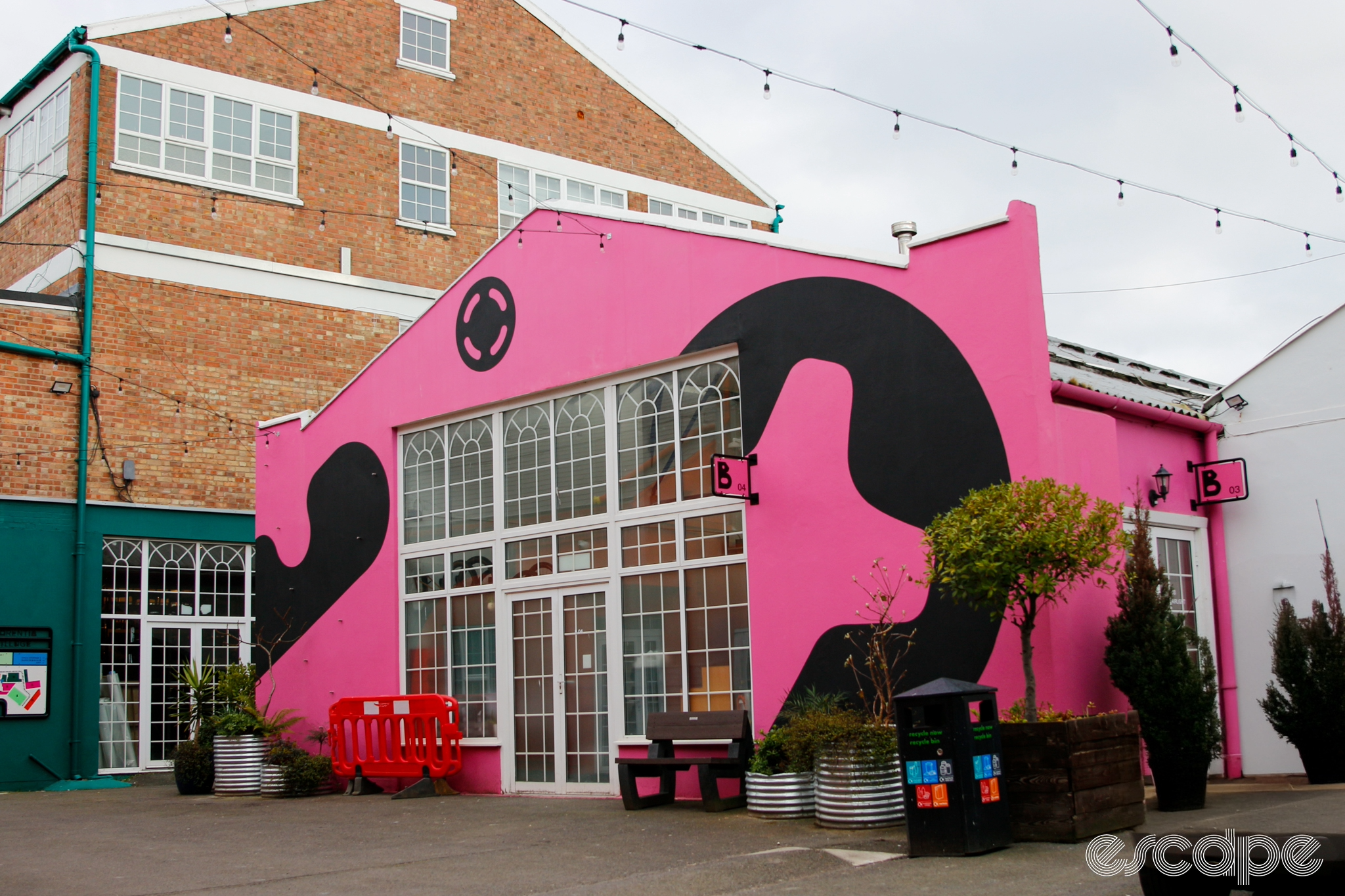
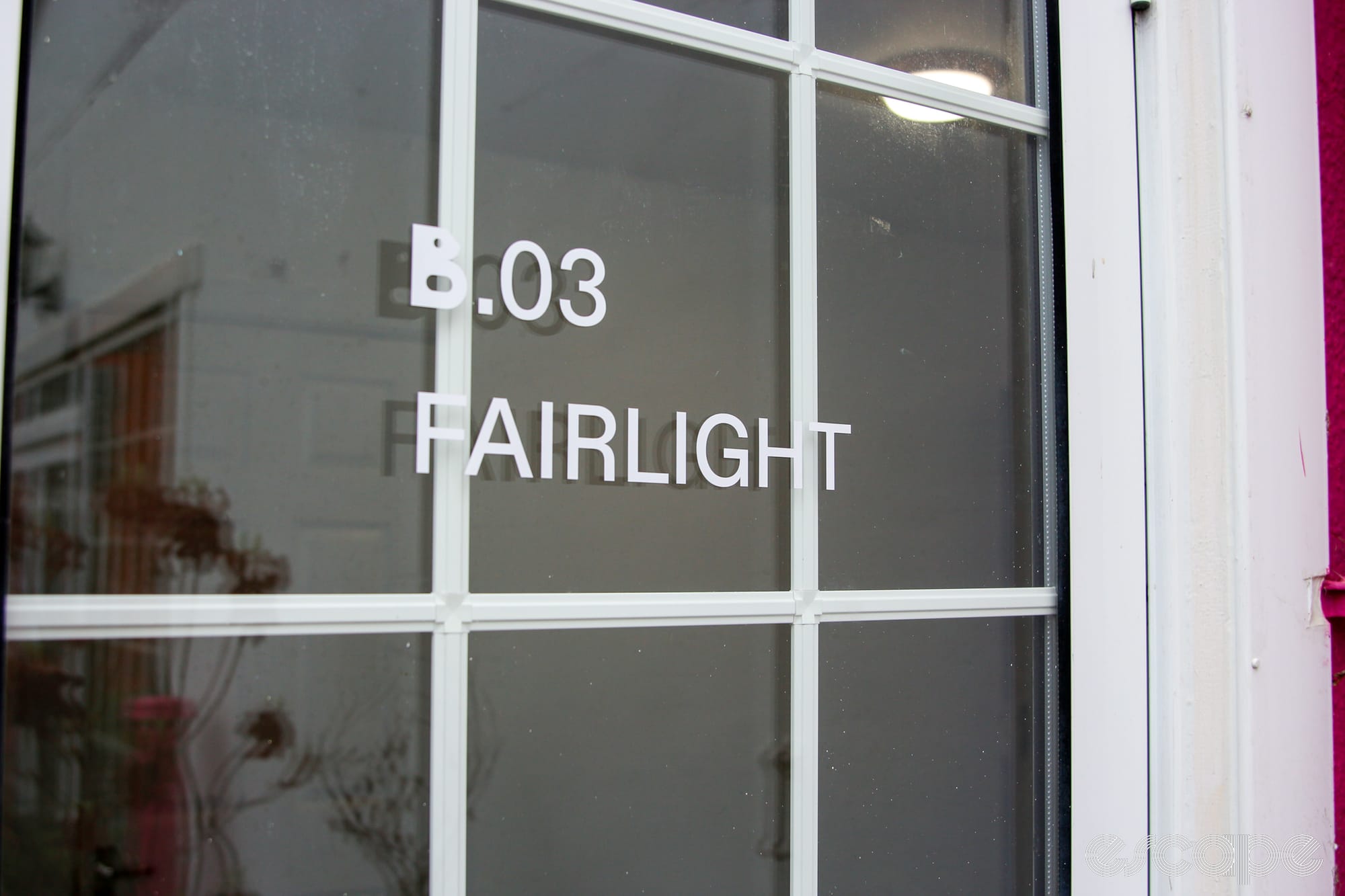
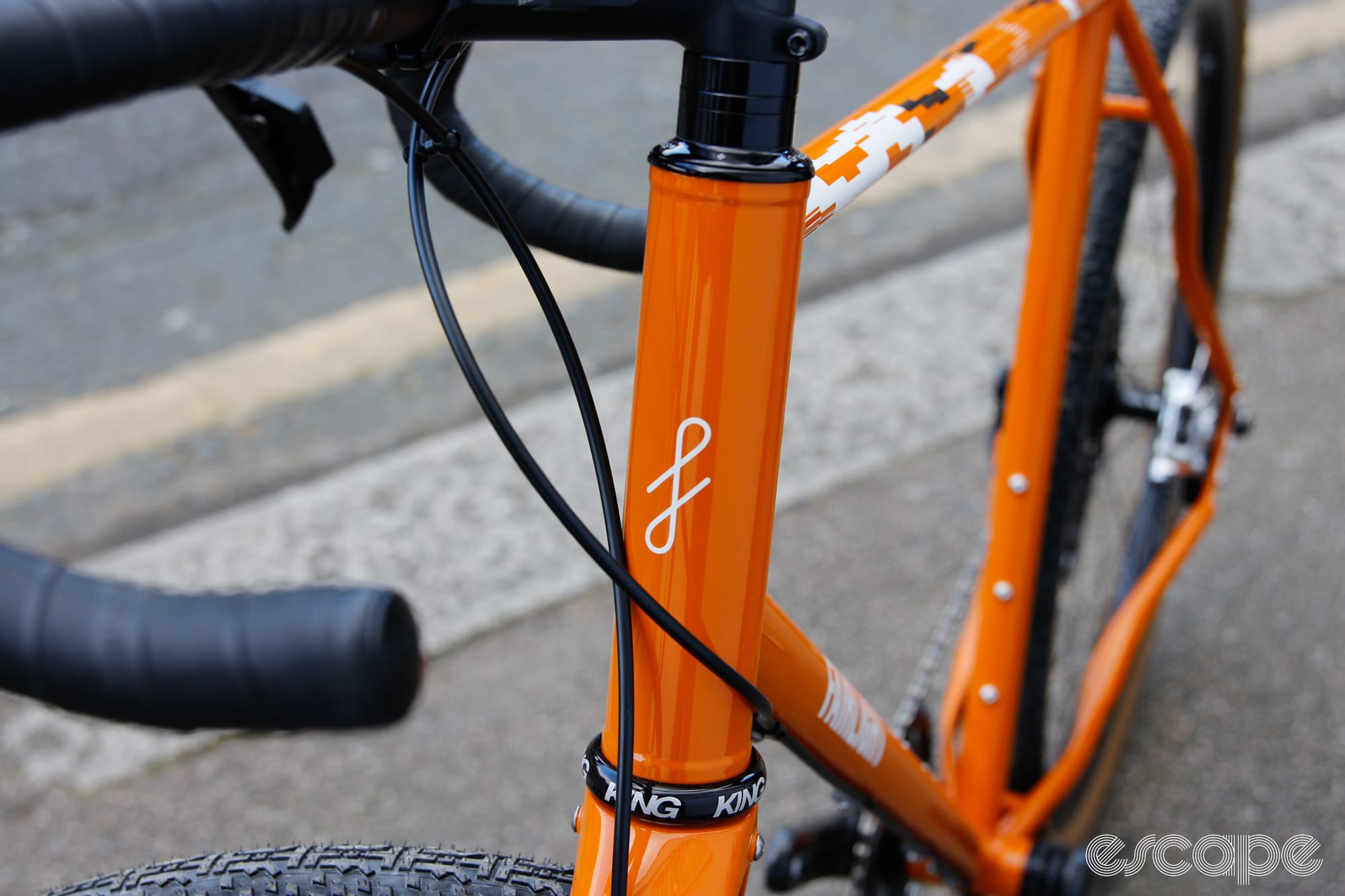
Outside and inside the headquarters.
Fairlight is a name that doesn't need much of an introduction in the industry – it’s the bike of choice for many UK-based cycling journalists, and on group rides across Britain, the steel frames are a common sight. But for the broader, non-enthusiast cycling audience, Fairlight is still a niche brand. Other metal bike makers exist across the UK, but Fairlight has earned a devoted following. I wanted to understand how.
The beginnings
Founded a decade ago by Dom Thomas and Jon Reid, the name Fairlight came from a TV show, chosen simply because it "sounded good."
Today, Fairlight produces around 2,000 frames annually – too many to be a custom builder, but far from mass-market. The steel frames all feature external cable routing and are intentionally more utilitarian than chasing the most recent tech trends.
Before Fairlight, Thomas led the design at another British brand, Genesis Bikes. That experience – combining engineering with aesthetics – now anchors Fairlight's approach.
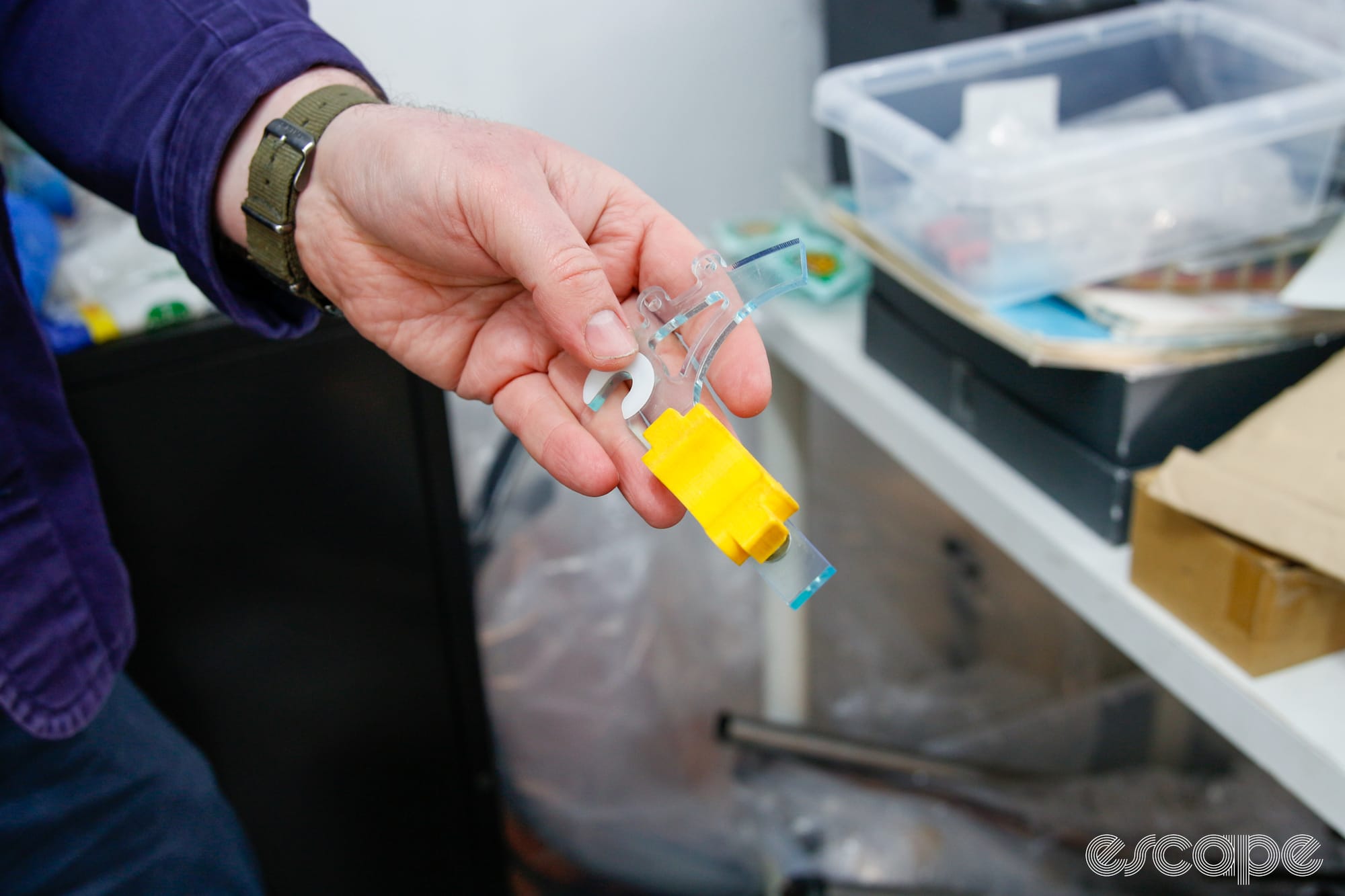
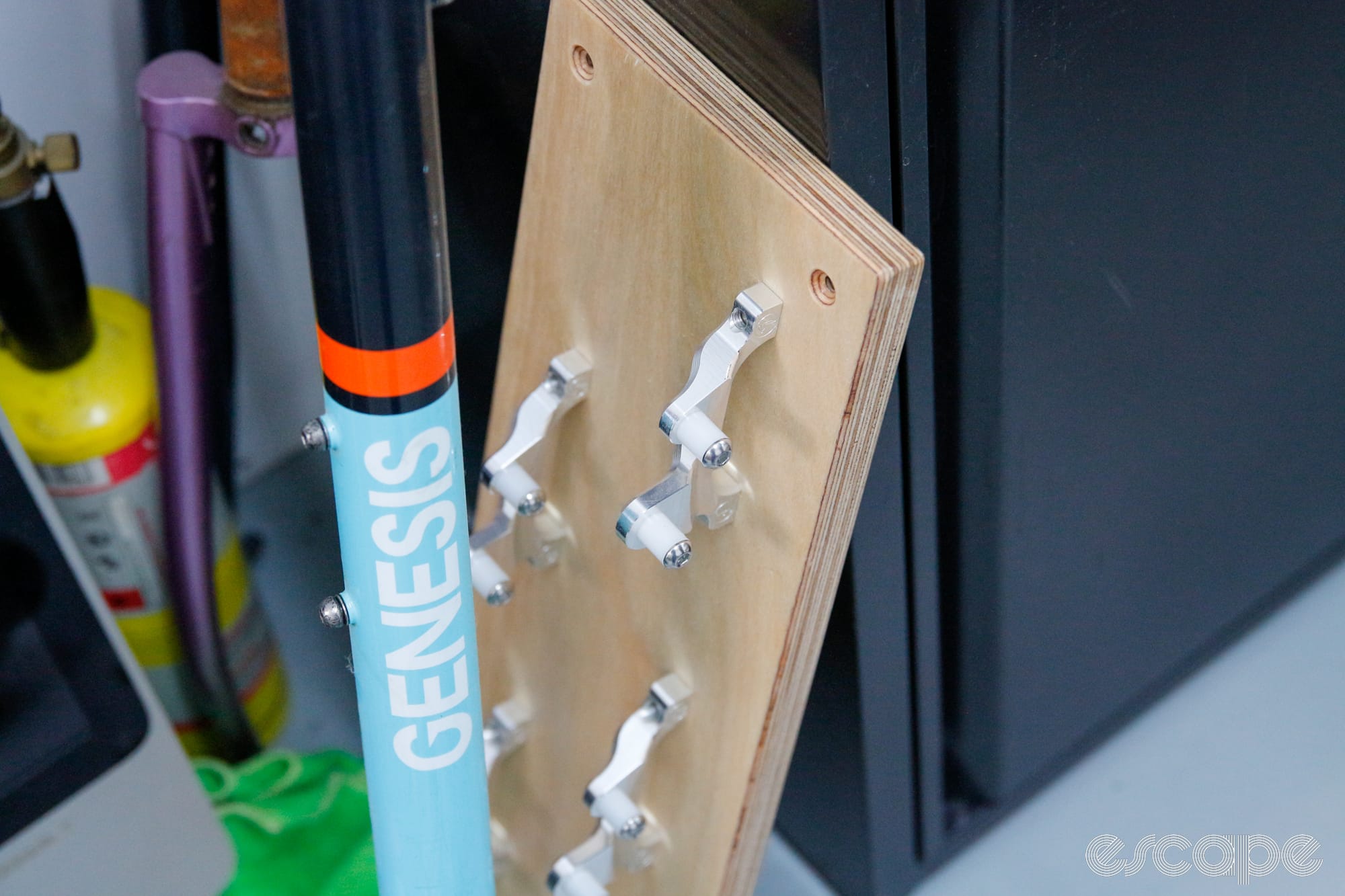
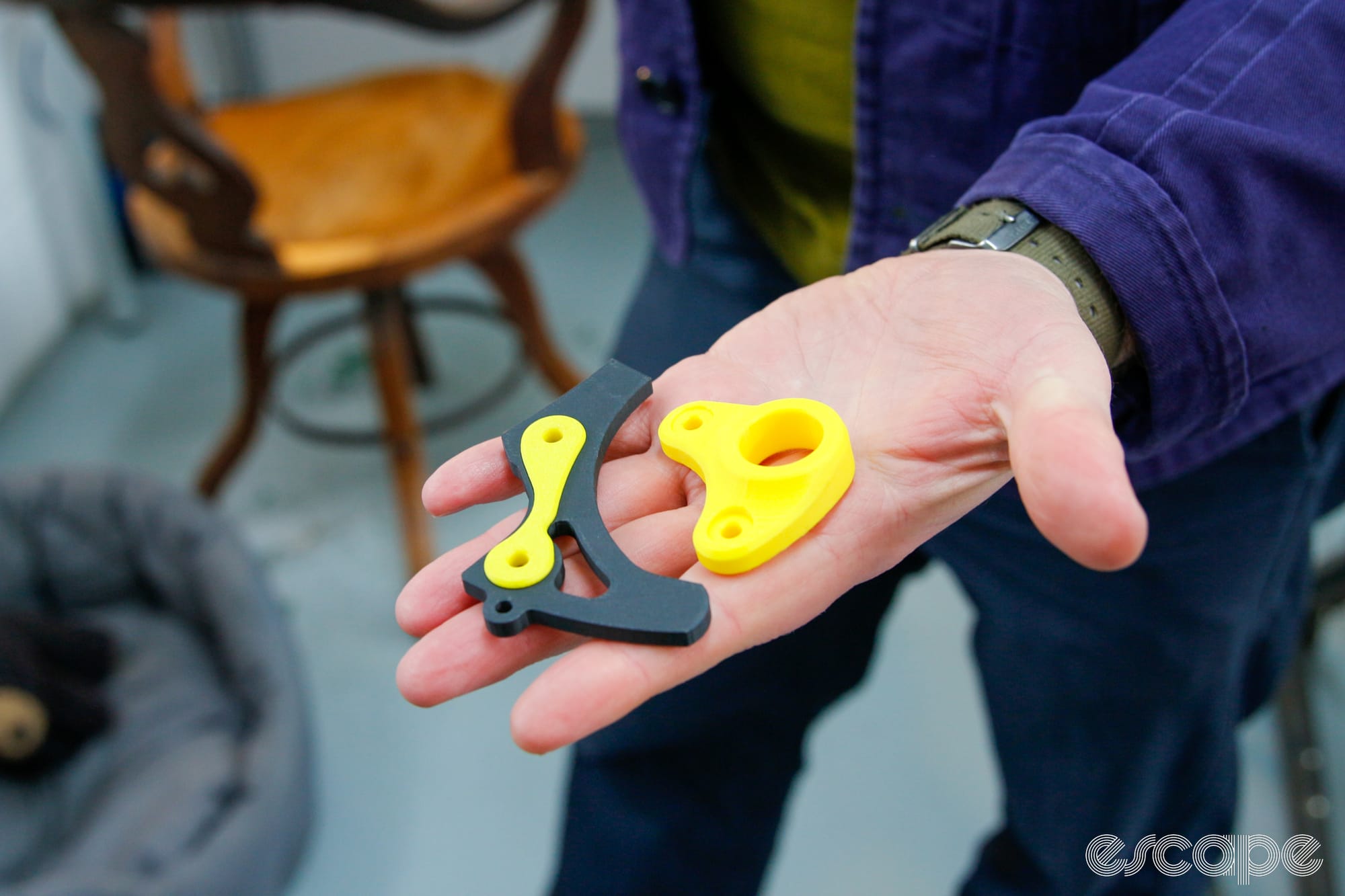
Snippets from Thomas' past at Genesis, as well as the first prototypes for disc brake mounts.
Still, as much as that utilitarian mindset underpins the brand, the other founding half, Jon Reid, brought with him a focus on fit. Having run Swift Cycles, a London-based bike shop, Reid was deeply embedded in the realities of selling bikes to real riders with real bodies – and increasingly frustrated by the lack of options that actually fit those riders. Fairlight's emphasis on sizing – with both Regular and Tall geometries – stems directly from those years on the shop floor.
The founders' industry backgrounds didn’t guarantee success, though. Instead, Thomas was clear to emphasise that growth has come slowly through word of mouth and staying true to their design principles.
Today, Fairlight employs a dozen staff and ships bikes across the globe. But for Thomas, it still feels like those early days sketching designs in a bedroom. And, despite the growth, the brand’s core values have not changed.
Fairlight, a design company
As we start to chat about what defines Fairlight as a brand, Thomas doesn't really hesitate. "We’re a design business," he says. "We make bikes, yes. But we obsess over every detail of why those bikes exist the way they do."
At first glance, many steel bikes look the same. But once you zoom in, the differences come into focus. Tube profiles, junction reinforcements, routing configurations: Those are the details that set the bikes apart.
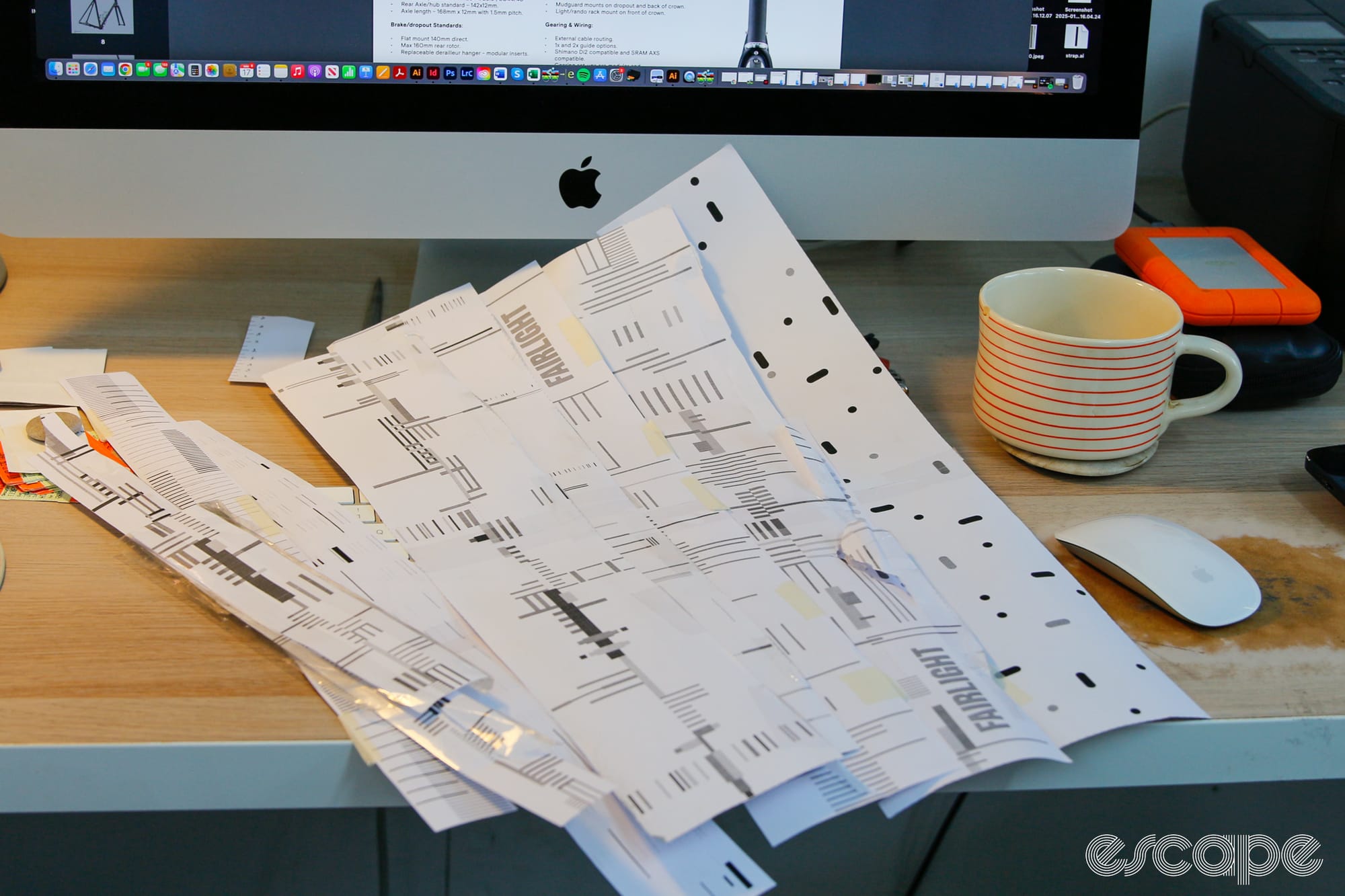
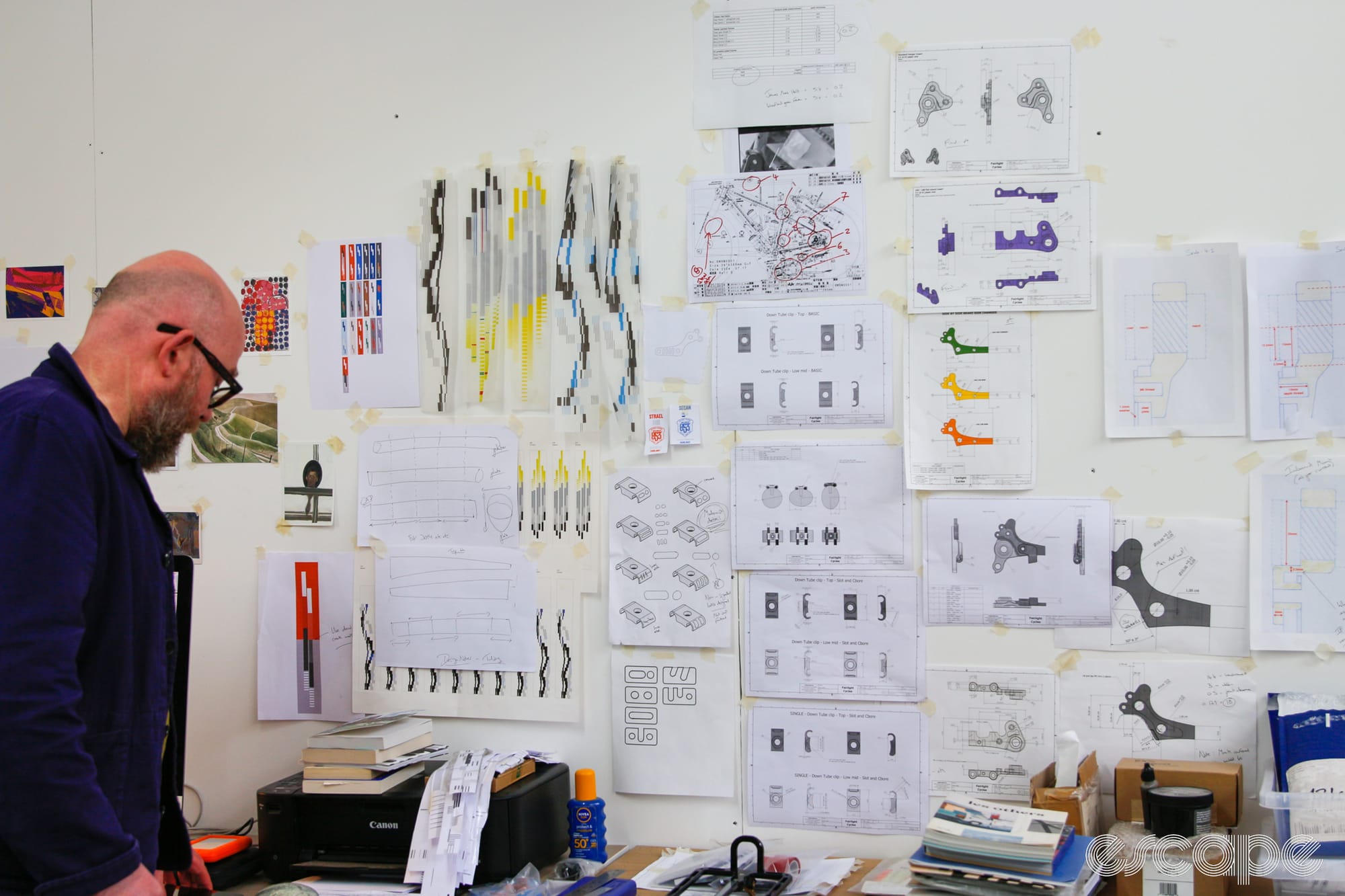
The top tube graphics printed out, and a wall of sketches.
"Ultimately, we're up against a huge amount of competition," Thomas explains. "And many customers will only be looking at a few key facts: tube material, tyre clearance, dropper post routing, all of these things, which I call box-ticking. You can have all of those and have a lousy bike. You can have all those and have a great bike as well, but the design is in the nuance, the stuff that isn't spoken about.
"We're very focused on the design of the products, making sure that they are genuinely as good as they can be. We use all the knowledge we have and collaborate with people like Reynolds and Bentley Components to constantly improve our product. So the value is about making the best product we can and charging a fair price for it," Thomas continues.
In recent years, "fair price" has very much become a subjective term in the bike industry. Following the pandemic-induced boom and subsequent crash, bike prices and value have become a much-discussed topic, with top models retailing for five digits and even entry-level models being ever more costly.
Fairlight operates fully direct-to-consumer, and framesets start at £1,500 (US$2,000) with complete builds from £2,650 (US$3,500) – figures that are competitive, yes, but hardly cheap. In order to fare well against the other metal bike brands, Fairlight has to offer something else beyond just monetary value. Thomas says that this is where care comes in.
Like what you're reading? There's more after the jump, but you'll have to be a member to read it. Escape Collective is 100% membership-funded, with no advertising and no affiliate links in our product reviews. Our work is only possible through your support. Need another reason to join? Our Member Purchase program offers discounts of 20% or more from participating brands like Velocio, Ritchey, Hunt Wheels and more (we get no revenue from your purchases; this is purely a member benefit).
Did we do a good job with this story?

